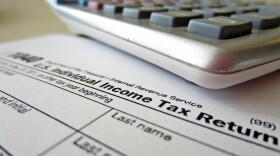New Hampshire, first in the nation when it comes to reliance on this tax, has long debated it. While critics say it’s unevenly distributed, defenders say it’s great for local control and far better than an income tax. And this familiar conversation is playing out across the country, with other states debating the fairness issue and offering alternatives.
This program was originally broadcast on June 12, 2014.
GUESTS:
- Daphne Kenyon – fellow at the Lincoln Institute of Land Policy and principal of D.A. Kenyon & Associates, a public finance consulting firm.
- Steve Norton – executive director of the New Hampshire Center for Public Policy Studies
- Elaine Povich – staff writer for Pew States' Stateline who recently covered property taxes. She has written three books and teaches journalism at the University of Maryland.
LINKS:
- A report from Lincoln Institute of Land Policy's Daphne Kenyon and Adam Langley on Payments In Lieu of Taxes: While PILOTs can provide crucial revenue for municipalities with large nonprofit sectors, there are also major problems with how they are currently collected in many places. To avoid these problems, the report provides general guidelines for when municipalities should consider PILOTs, highlights the importance of municipal–nonprofit collaboration on PILOTs, and outlines alternative ways to raise revenues from tax-exempt nonprofits.
- Elaine Povich's Stateline article about new alternatives to property taxes: In addition to Pennsylvania, other states also are grappling with how to lower property taxes or make them fairer. But replacing property tax revenue is not easy, and the tax also has defenders – usually the constituencies that would pay more taxes if they went away.
- A Nashua Telegraph article looks at Census data on property taxes: The total amount of tax collected by the state of New Hampshire is less than that of almost any other state, and barely half the total collected in Massachusetts, according to just-released data from the U.S. Census Bureau.








